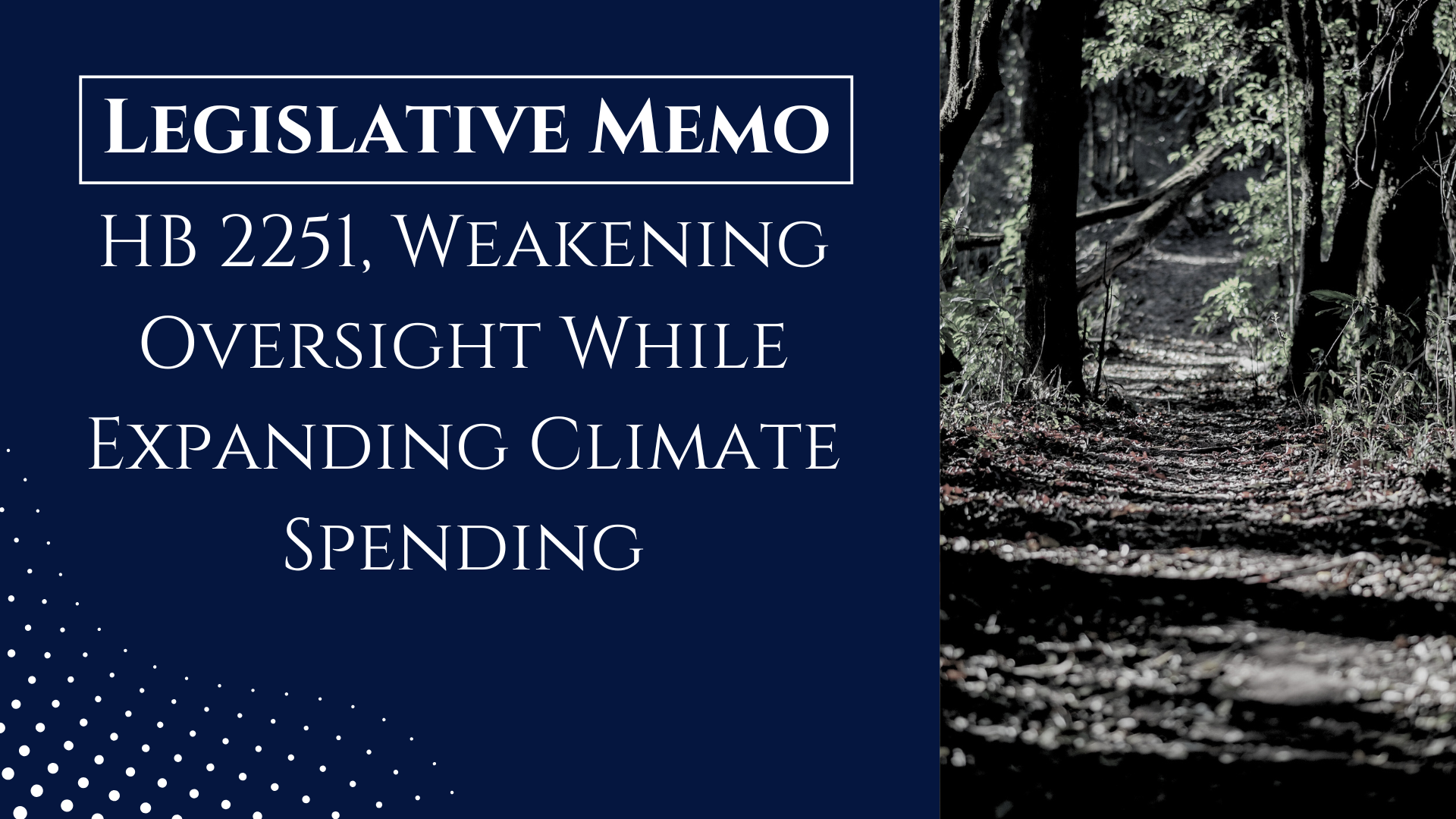![]() Download the full legislative memo here
Download the full legislative memo here
Key Findings
- Unlike the revenue-neutral carbon tax proposed two years ago, Governor Inslee’s new proposal (SB 6203) would significantly increase taxes, promising to use the money to cut emissions.
- The bill makes basic scientific errors, claiming snowpack is “dwindling” when snowpack levels are consistently above average, and makes claims about ocean acidification that are contradicted by the state Department of Ecology.
- The carbon tax would add $210 to average household costs in 2019, increasing to $525 a year in 2029.
- This would represent a 20 percent increase in gas taxes in 2019, and a 60 percent increase by 2029.
- Families under 200% of the Federal Poverty Level would see some of their vehicle license costs waived, reducing their total carbon tax bill by 65 percent in the first year, but only 18 percent by 2029.
- With most industries exempted from the legislation, the burden of these taxes falls primarily on families and commercial business.
Introduction
Saying global warming represents an “existential threat” to Washington state, Governor Jay Inslee is promoting his latest climate policy, SB 6203, to impose a carbon tax that would raise about $1.8 billion in the first two full years, funneling the money to a wide range of projects he argues will cut CO2 emissions.
Unlike the simpler and more transparent revenue-neutral carbon price the Governor opposed two years ago, his new proposal includes funding for a range of special interest groups and speculative programs that would waste a significant percentage of the revenue on efforts that do little to cut emissions.
Despite the dramatic rhetoric from the Governor and other environmental activists, SB 6203 would be surprisingly ineffective when it comes to actually producing results. Although there are some important elements, such as metrics to measure the effectiveness of government expenditures, they are undermined by elements designed to satisfy special interest groups and to gain political support.
The result is legislation that would put the heaviest burden on families, using the new taxes to placate special interests rather than cut actual CO2 emissions.
This Legislative Memo is the first of a series that analyzes the Governor’s carbon tax proposal, and examines the justification for the legislation, its cost, the new bureaucracy it would create, and its effectiveness. In total, the policy structure of the bill indicates the goal is to get something passed and claim as a political victory, even if it means sacrificing the bill’s purported goal of effectively reducing carbon dioxide emissions.
![]() Download the full legislative memo here
Download the full legislative memo here





